Prompted by the pandemic, more farms are now making sweets, snacks and pickles with their harvest so they can directly connect with customers across the country and overseas
Prompted by the pandemic, more farms are now making sweets, snacks and pickles with their harvest so they can directly connect with customers across the country and overseas
When Srivatsav Duwari and his fiance Shrreenithy S harvested a bounty of mangoes in June 2020, they turned to Instagram.
The response was immediate: they found more than 500 takers for the produce from their six-acre farm in Madhuranthagam, Chengalpettu. The next challenge was to retain these customers till the next mango season. “We then decided to offer condiments made using only produce that we grow ourselves: a mango chunk jam, and an aunt’s brinjal chilli pickle,” says Shrreenithy, a Food Science graduate, adding both were “instant hits.”
While she is based out of Tirunelveli, handling customer care and marketing, Srivatsav – who is also a professional badminton player – lives in Chennai, and oversees packaging and delivery. The couple’s recently launched ‘Subasri Reddy Vilas’ brand now delivers across Tamil Nadu, boasting a product line of farm-based produce along with Tirunelveli sweets such as Halwa and Paalgova. .
They are not alone: Two years of battling a pandemic, and all its associated challenges, has resulted in a spurt of farms finding ways to directly connect with customers by making value added farm products, which have the advantage of longer shelf life, in addition to being easier to store, transport and sell through the year. Making products like jams, pickles, murukkus and traditional sweets on site also creates alternate employment for farm hands.
Dharani Agro Organic Farms, Ramanathapuram, Tamil Nadu,
In Ramanathapuram, for instance, Murugesan R’s 45 native breed cows such as Ramanathapuram Naatu Maadu, Gir, Sahiwal and Sarbarkar kept his staff engaged through every lockdown. With an abundance of milk, Murugesan began to fudgy palgova by boiling milk in a pan, then stirring it over a slow fire with country sugar. “We have five to 10 liters of excess milk every day: For every 10 liters of milk, we add a kilo of sugar and cook for an hour to get the right consistency,” he says. A cook specialising in millet and palm jaggery sweets was hired, and he is assisted by the local women. The farm provides jobs in the villages, as people are trained to take orders via phone calls, packing and couriering.
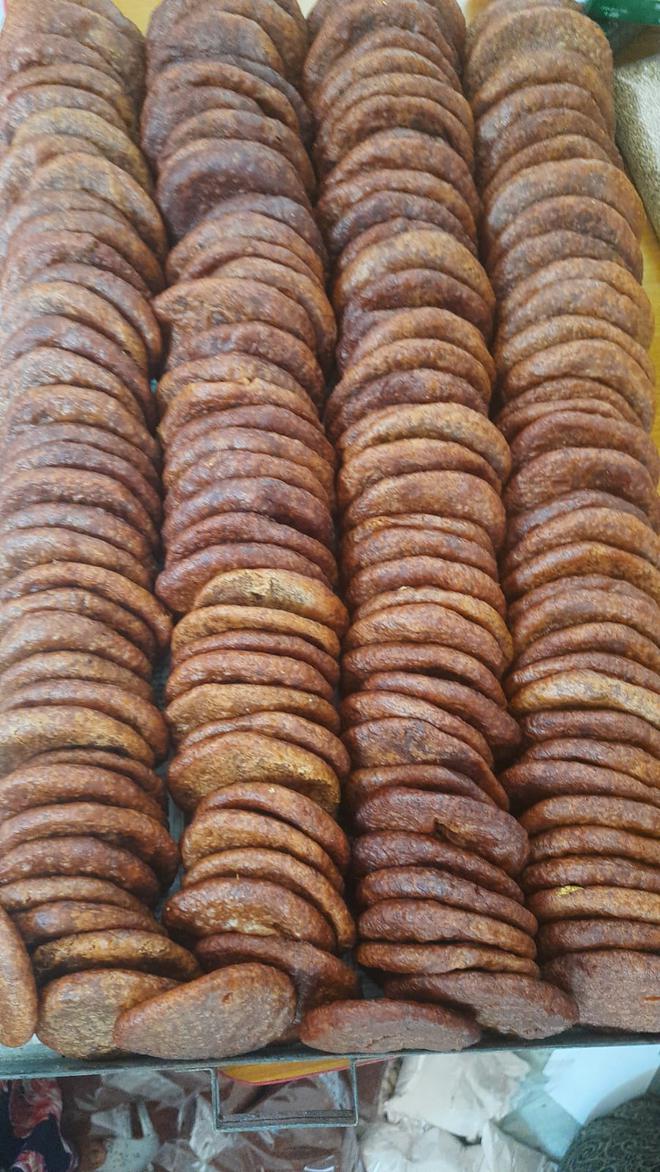
Mappilai samba rice adhirasam made at Dharani Agro Farms, Ramanathapuram
Murugesan launched Dharani Food Products (phone: 9488728194) with palgova in 2020. Gradually, they increased the range and today the farm makes 80 value-added products, including dhodhol, a mellow halwa-like sweet made with coconut milk, nattu sakkarai (country sugar), cardamom and rice flour. “ Dhodhol , which is one of our fastest selling products has been made in Ramanathapuram for over 1,000 years,” says Murugesan, adding that the recipe probably made its way there from Sri Lanka, where it is a popular dessert.
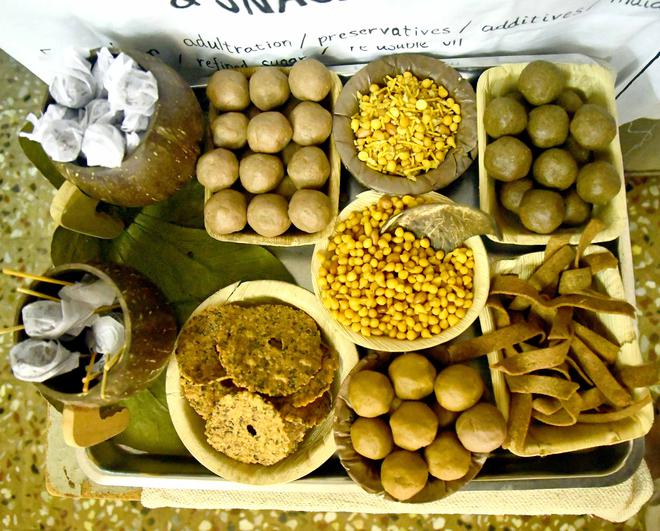
Marabu Suvai organic and vegan sweets and snacks store in Thiruvanmiyur, offers a wide range of sweets and snacks
| Photo Credit: KARUNAKARAN M
Meanwhile, in Chennai’s Thiruvanmiyur, a team of six women work with the quiet, efficiency making flax seed laddus, moong dal laddus, heritage rice laddu (with karuppu kavuni, kattuyanam and mappilai samba rice), black urad dal thattais and millet ribbon pakodas. What they are most famous for, however, are four types of kamarkat: “Hard, medium soft, baby-soft (for one to three year old kids) and lollypop,” says R Srinivas, the man behind the outfit Marabu Suvai (Phone: 9789826594).
Long time coming
Srinivas began making kamarkats with his wife eight years ago. But his journey — like that of these farm-based initiatives — has been in the making years before the brand came into existence.
Srinivasan was a mechanical engineer before a book he read 10 years ago completely changed his life and career, eventually leading to the birth of Marabu Suvai. Pasumai Puratchiyin Kadhai (The story of Green Revolution) by Sangeetha Sriram, which he picked up at an organic store, gave him a perspective on safe food and the erosion of India’s rich agricultural traditions.

At Marabu Suvai organic and vegan sweets and snacks store
| Photo Credit: KARUNAKARAN M
“After spending a few months understanding the concept of organic food, I decided to focus on traditional snacks, so I could provide people, and children especially, an alternative to the processed sweets and snacks in the market,” says Srinivasan. Many of the processes are elaborate and time-consuming: “For heritage ladoos, the rice is soaked, dry roasted in a clay pot three times and pounded into flour, after which cashew butter or peanut butter and little gingelly oil is added to shape laddus. “ But he believes the resulting clean flavours are worth the effort.
For Raam Mohan NU of Farm Made Foods in Palladam, (www.farmmadefoods.com) the journey has been nearly as long, and meandering. Although he completed a degree in Mechanical Engineering, then went to the UK for further studies, his heart was always in agriculture. Hailing from an agrarian family in Palladam, Tirupur district, Tamil Nadu, he quickly returned to the fold, but with a lot of fresh ideas.
“My grandfather and father were agriculturists and owned a hundred acre coconut grove in Palladam. When I joined them, I began to focus on value-added products and launched Farm Made Foods in 2015. With technical support from the Central Plantation Crops Research Institute (CPCRI), Kasargod, Kerala, we began to tap coconut nectar,” says Raam.
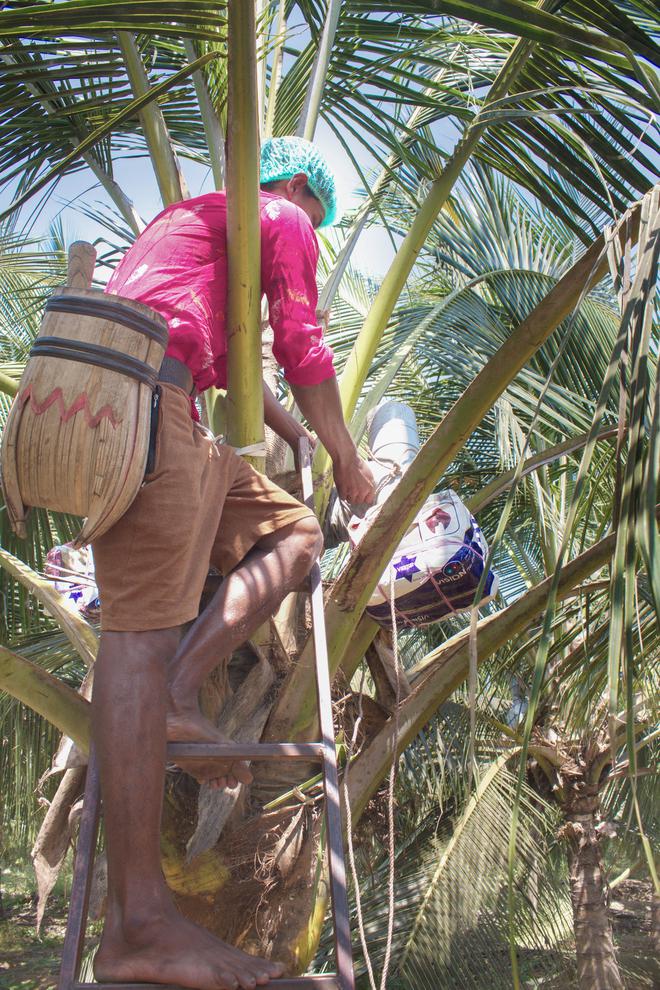
At the coconut grove in palladam, coconut sap is being tapped using ice box technology.
Eight litres of coconut nectar are made into a kilogram of sugar. Raam’s mother makes traditional sweets using this sugar. “She began with a two-ingredient vegan barfi, made with coconut sugar and gram flour. Today we also offer coconut barfi, Mysorepak and sesame laddus.” All ingredients are from their own farm except for the ghee, which they procure from a farm nearby. The family business now ships across the country as well as overseas, through their website (www.farmmadefoods.com.)
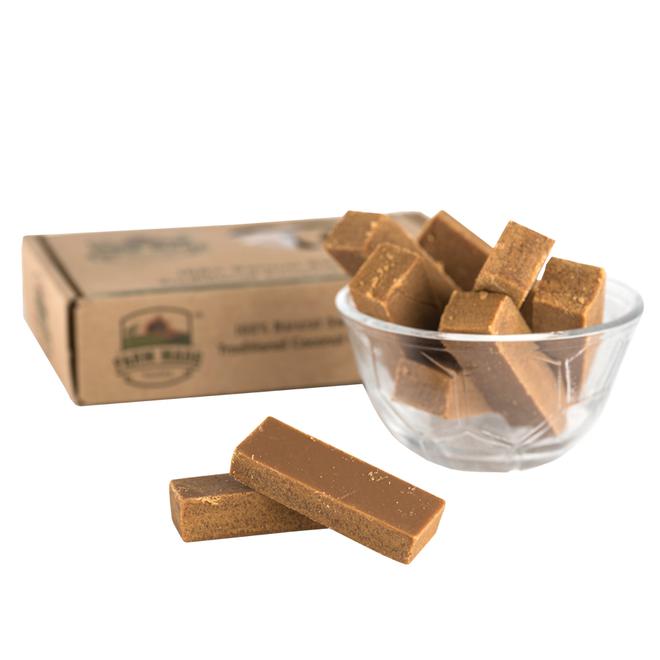
Cocnut burfi offred by www.farmmadefoods.com
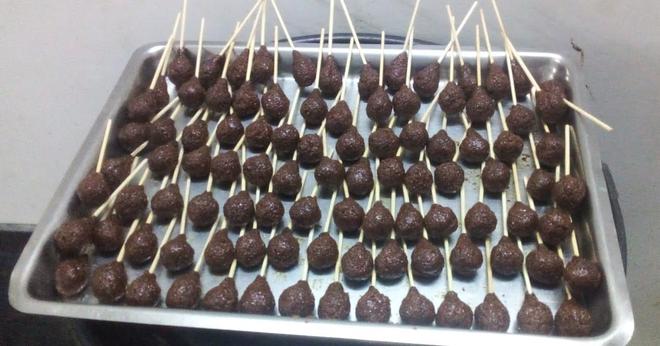
Kamarkat lollypop by Marabu suvai
Meanwhile at Dharini foods, Murugesan has expanded into maapilai samba adhirasam, Aathur kichili samba murukku and porivilangai (peanut and counrty sugar balls). Their mooligai podi (herbal tea) was in high demand during the peak of the pandemic: it consists of ten grams each of Sukku, Sitharathai, Adhimadhuram, Thippili, Kandanthippili, Thalisapathiri and soorathavarai elai , all processed and ground together. Creating products like this would have been impossible without a farm: Murugesan, like many entrepreneur around the country, is realising the advantages of being able to grow what he needs, and tailor products with inputs from customers.:
“Most popular is our idiyappam maavu and navadhaniya sathumaavu. Our idiyappam flour is made using the native rice of Ramanathapuram district, Chitrakar rice. This gives the product a unique taste and texture,” says Murugesan. Other popular items include UluthamKali and vendhiya kali pre mix. Clearly, Murugesan has no thought of stopping his business expansion: apart from an outlet in Ramanathapuram, Dharani Food Products now has stores in Madurai and Chennai’s Medavakkam area.
























